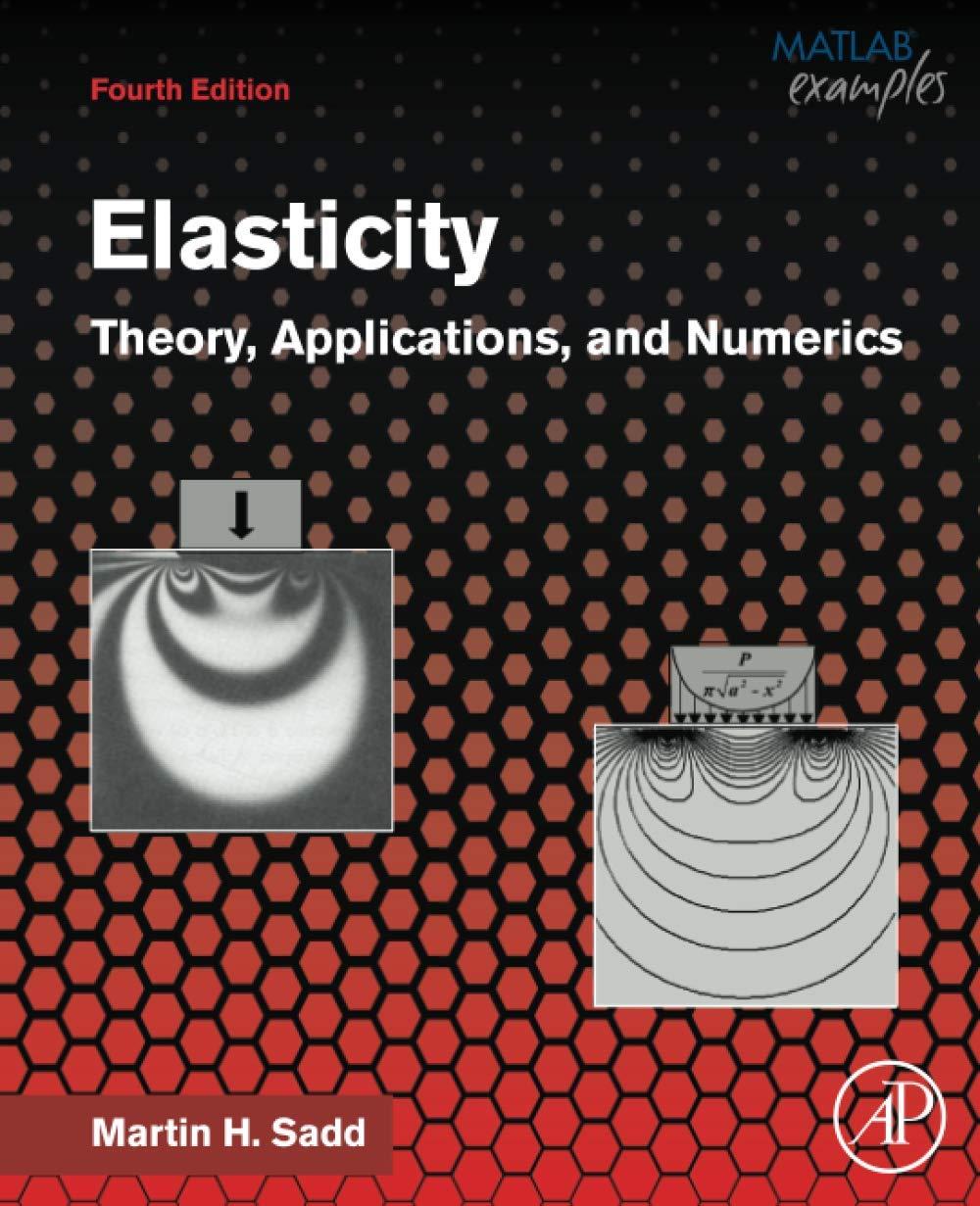If a ij is symmetric and b ij is antisymmetric, prove in general that the product a
Question:
If aij is symmetric and bij is antisymmetric, prove in general that the product aijbij is zero. Verify this result for the specific case by using the symmetric and antisymmetric terms from Exercise 1.2.
Data from exercise 1.2
Use the decomposition result (1.2.10) to express aij from Exercise 1.1 in terms of the sum of symmetric and antisymmetric matrices. Verify that a(ij) and a[ij] satisfy the conditions given in
the last paragraph.
Data from exercise 1.1
For the given matrix/vector pairs, compute the following quantities: aii, aijaij, aijajk, aijbj, aijbibj, bibj, bibi. For each case, point out whether the result is a scalar, vector or matrix. Note that aijbj is actually the matrix product [a]{b}, while aijajk is the product [a][a].
Equation 1.2.10
![]()
Step by Step Answer:

Elasticity Theory Applications And Numerics
ISBN: 9780128159873
4th Edition
Authors: Martin H. Sadd Ph.D.





